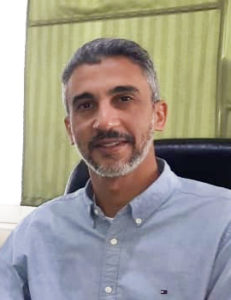Tamer El Damaty, Operations Director, Alessa Industries, in this exclusive interview with Climate Control Middle East , given during HVAC R Expo Saudi in end-January in Riyadh, speaks on viewing Iraq, Egypt, the UAE and Lebanon as strong export markets, on the issue of refrigerants and on the company’s roadmap for 2019. Excerpts…

Tamer El Damaty, Operations Director, Alessa Industries
Could you elaborate on Alessa Industries’ priorities as a manufacturer in the Kingdom of Saudi Arabia and in the broader Middle East region?
Alessa is one of the largest manufacturers for air conditioning in the Kingdom, the GCC region and the Middle East. Our factory has been established for approximately 40 years, and we presently have four factories for air conditioning. The first is for producing window units, split air conditioning units and coolers. The capacity of the factory is approximately 850,000 units a year. We also have a factory for refrigerators and freezers, the capacity of which is 70,000 units a year. In addition, we have been running a state-of-the-art factory for large air conditioning units for commercial products for the last six years. We have been producing air-handling units with a thermal break, along with our rooftop packaged units, which we developed. The requirement by SASO is around 11.2 ER, but all our units exceed 11.6, 11.7 and 11.8, which makes us save energy for customers, as we get paid back for initial cost during the first or second year. We also have our own fan-coil units and chilled and hot water coil units. Our fourth factory is for plastic components, mainly for residential units. We recently also established a state-ofthe-art assembly line, where we produce rooftop packaged and split units. Recently, we established large commercial labs, which are testing for 50 tonnes for splits and 100 tonnes and 200 tonnes for air-cooled chillers.
Could you name some of the brands Alessa Industries is working with? And further, could you elaborate on what’s recent at the exhibition, this year?
We have our own brands, like Crafft. In addition, we are the sole agent for many other international brands, such as Gibson and Hitachi units. We have the agency for Samsung for their ACs, which is a commercial agreement, but we intend to assemble the units here in our factory. With regard to the exhibition, this year, our focus has been on air-handling units. At the exhibition, we launched our rooftop series, which is from five to 30 tonnes. Our focus is on high quality and performance in conditions that can reach 56-58 ambient degrees Celsius. Our double-skin, fresh-air packaged units are mainly for hospitals and pharmaceutical companies. We have also launched our multi-fan air-handling units, where we have used German fans. This is in addition to data cooling, where we are co-operating with OEM manufacturers.
In your opinion, as a manufacturer, how are you ranked in the Kingdom versus your competitors?
Alessa is a well-known manufacturer in the GCC region and among Arab countries, as a whole. It is well known in Egypt, Iraq and Lebanon. The export market is not all that good; however, presently, our biggest market is in Iraq followed by Egypt, UAE and Lebanon.
As a manufacturer, what is your take on the use of refrigerant, R-290? Have there been any updates lately?
Yes, we are cooperating with UNIDO, as it supports the use of environmentally friendly alternatives. We are co-operating with them to use R-290, which is not in the market yet and cannot be produced without the equipment. Presently, we are working on a prototype, which is being tested; however, we still need to prepare a pilot for production before launching into the market. On the other hand, we need cooperation from UNIDO, because we are providing freezers. We have received new foam-injection machines suitable for environmentally friendly chemicals.
How do you see the future for your local market here? We understand it’s been quite challenging in the recent few years. How do you see 2019 and beyond?
The government is launching a mini mega project, and they just announced a budget of SR 450 million for the projects. The market is not stagnant anymore, and we would like to believe that it has begun to improve, as compared to the year 2018. The challenge, however, lies with Chinese products, and that’s why Alessa has the vision to focus on large units, which is why we have invested more than SR 10 million in assembly lines and laboratories, to develop new platforms.
Copyright © 2006-2025 - CPI Industry. All rights reserved.